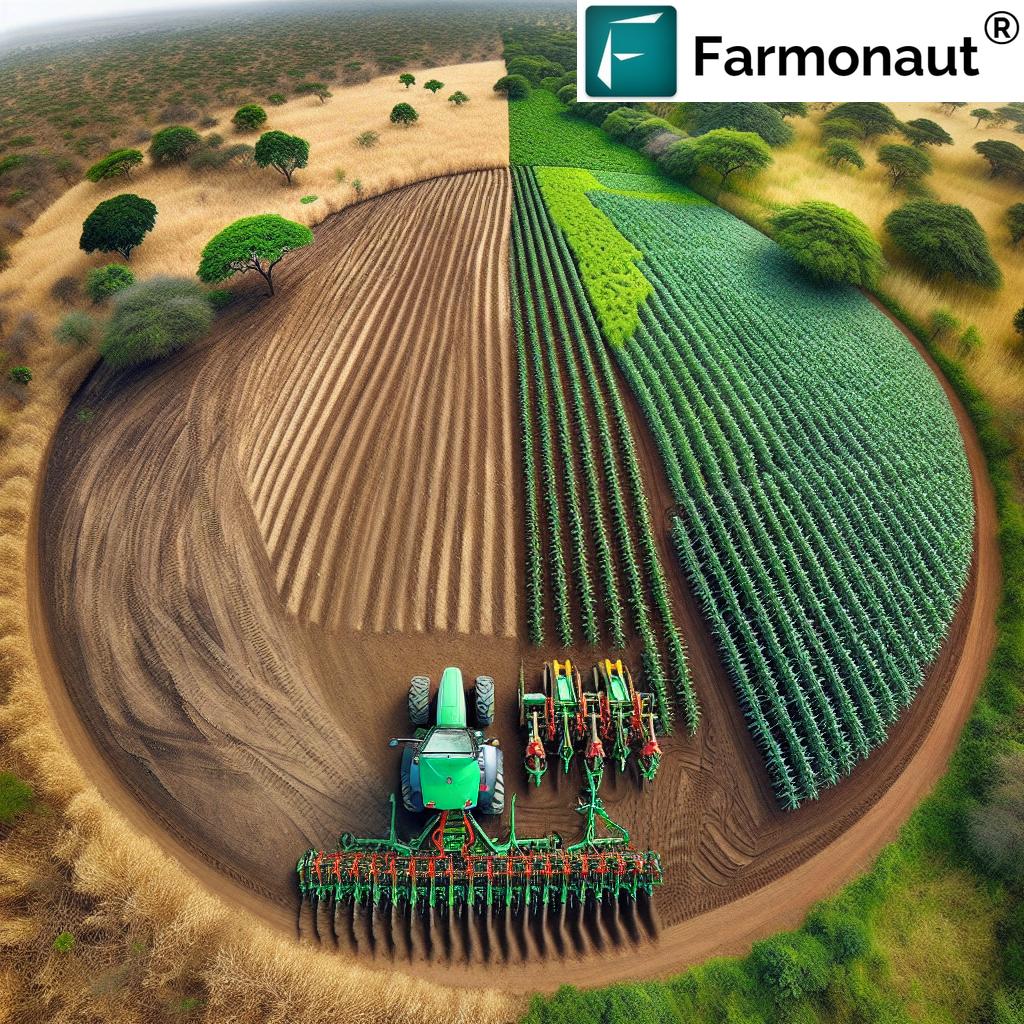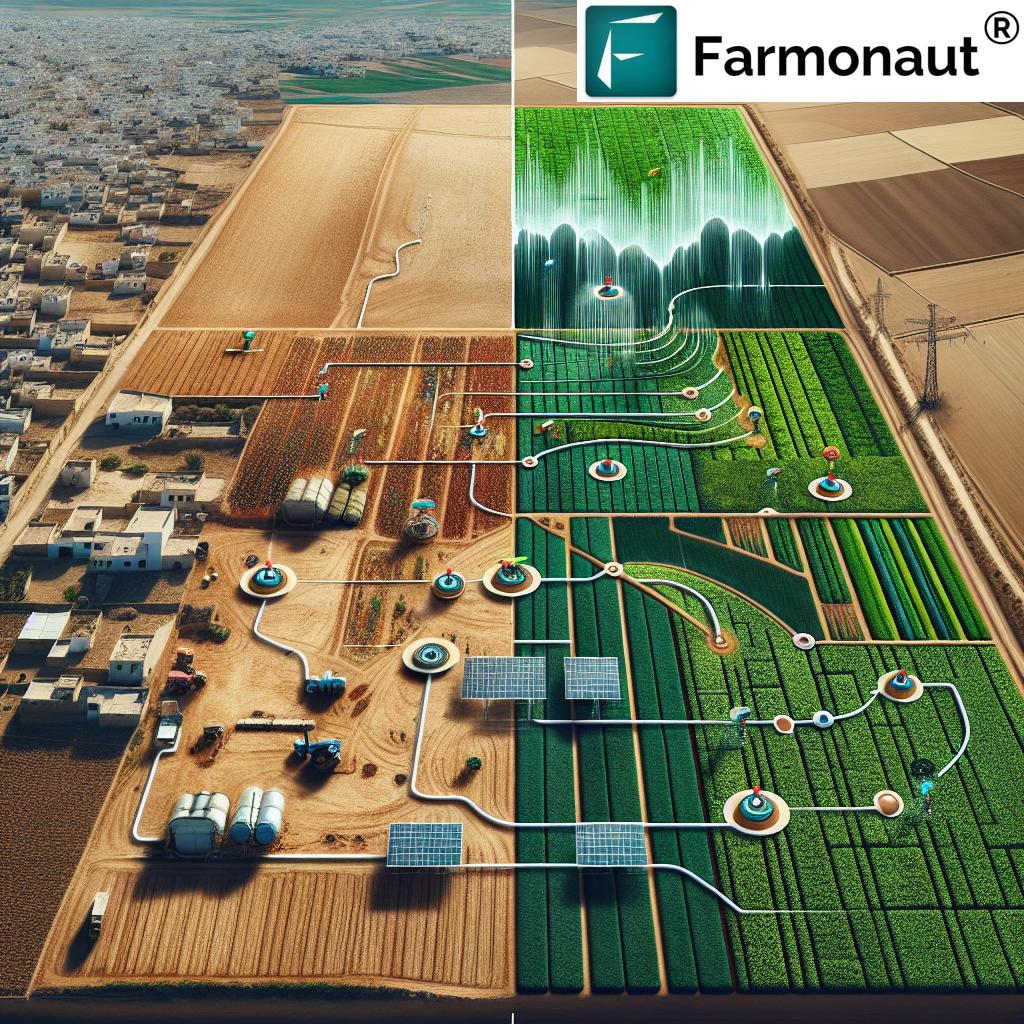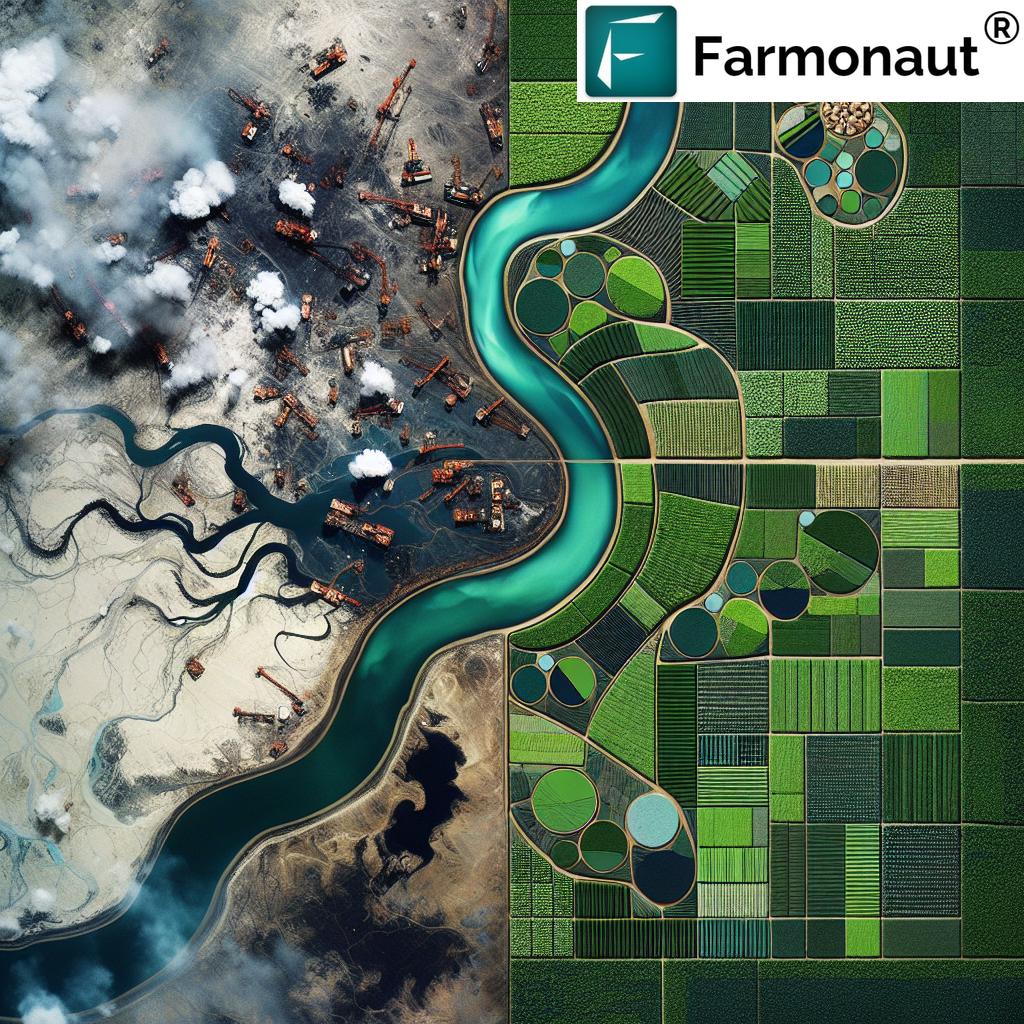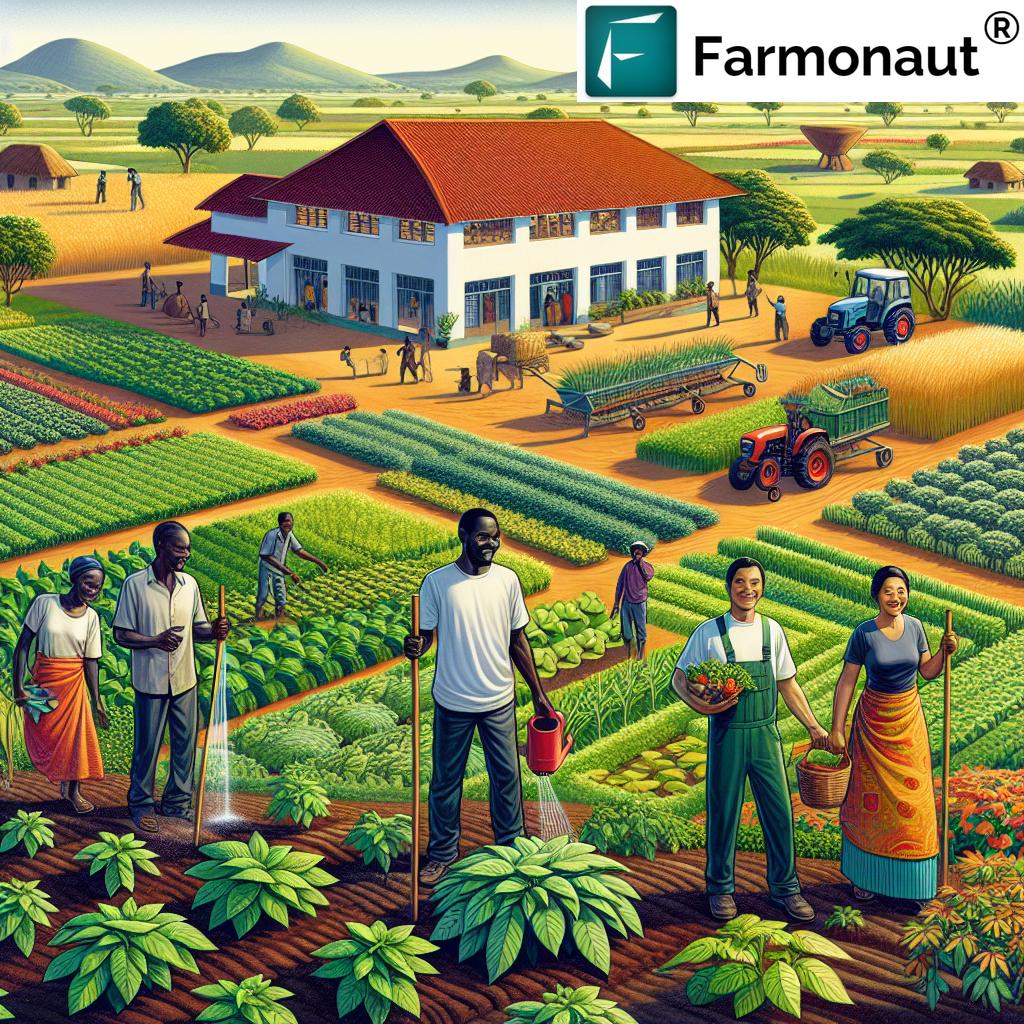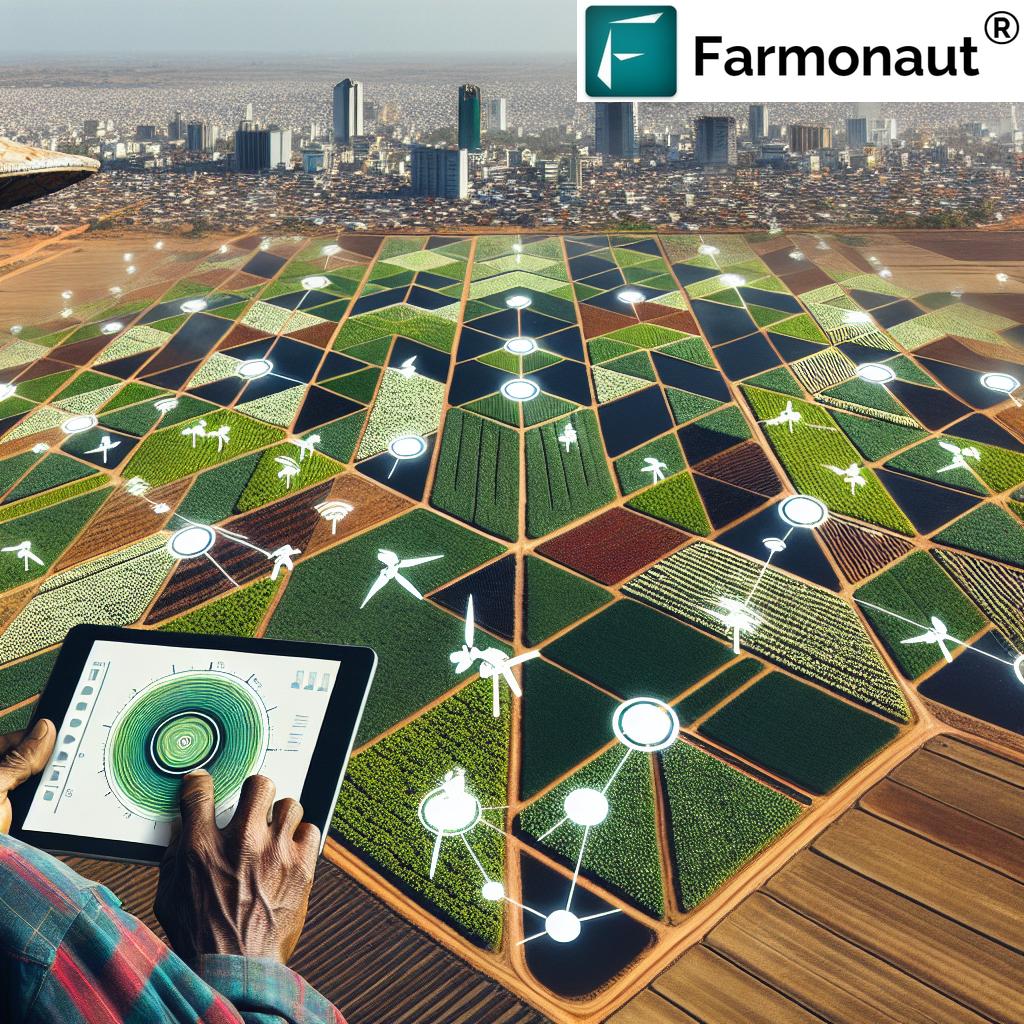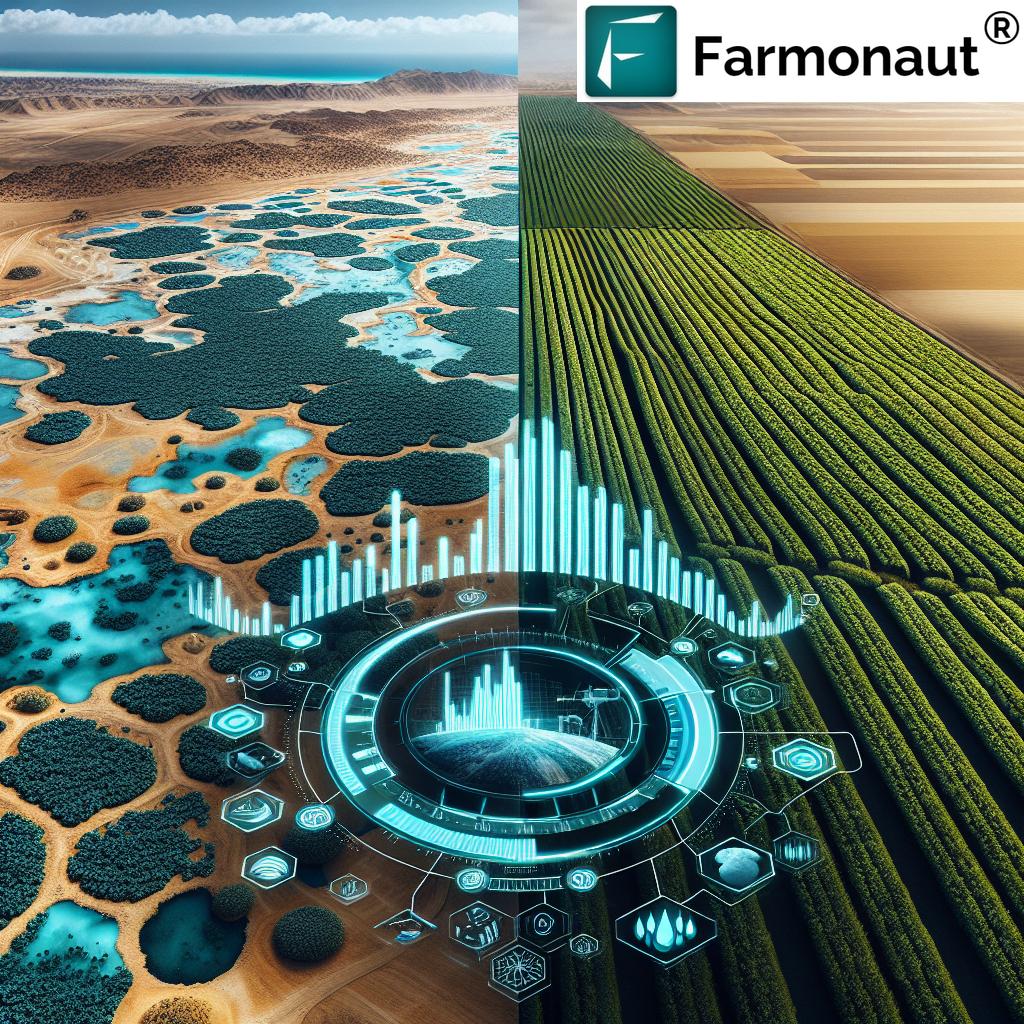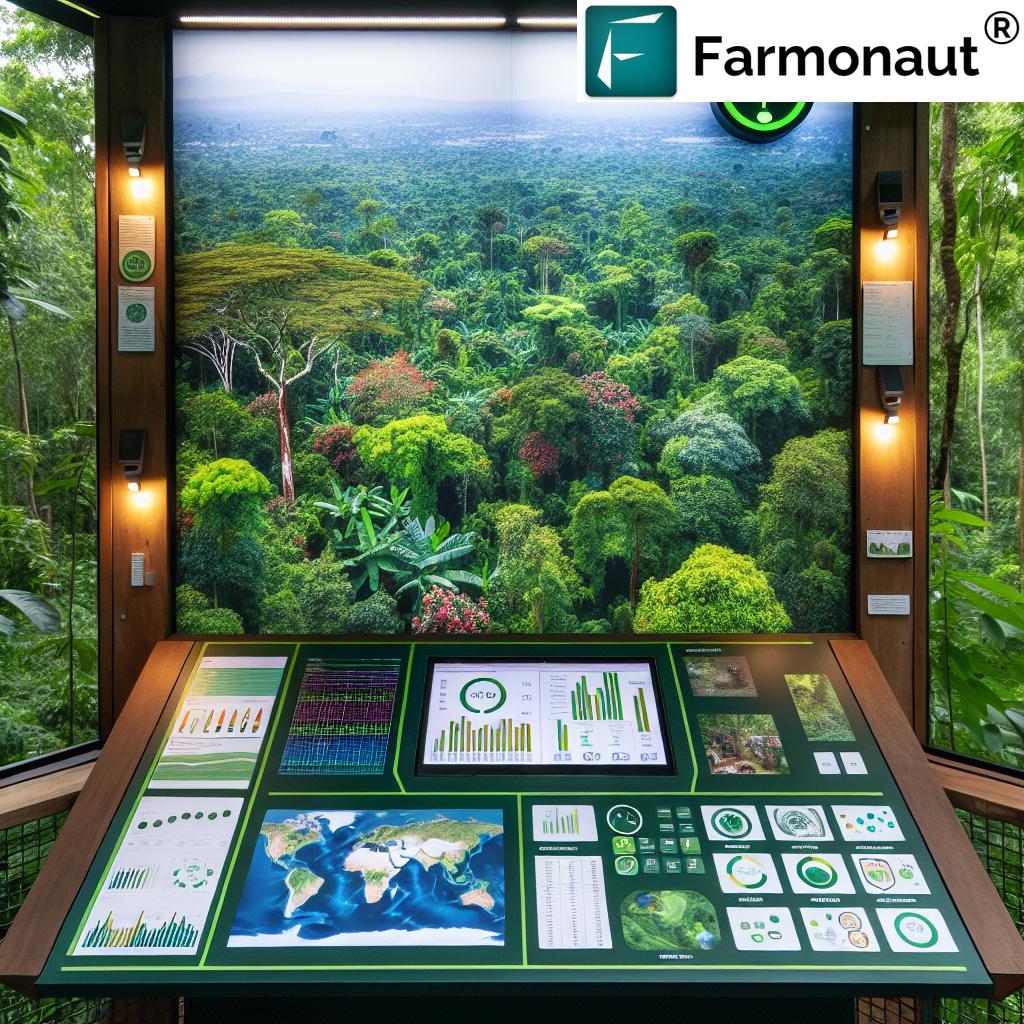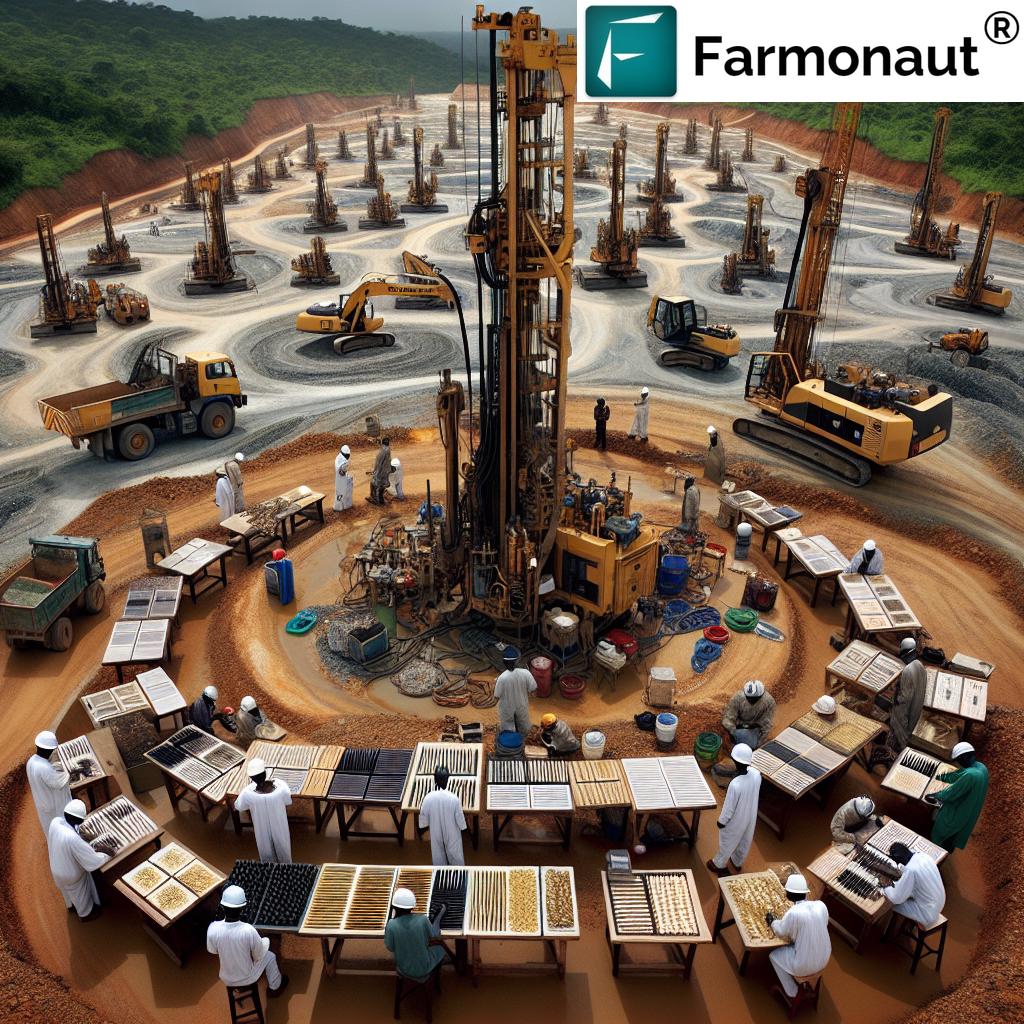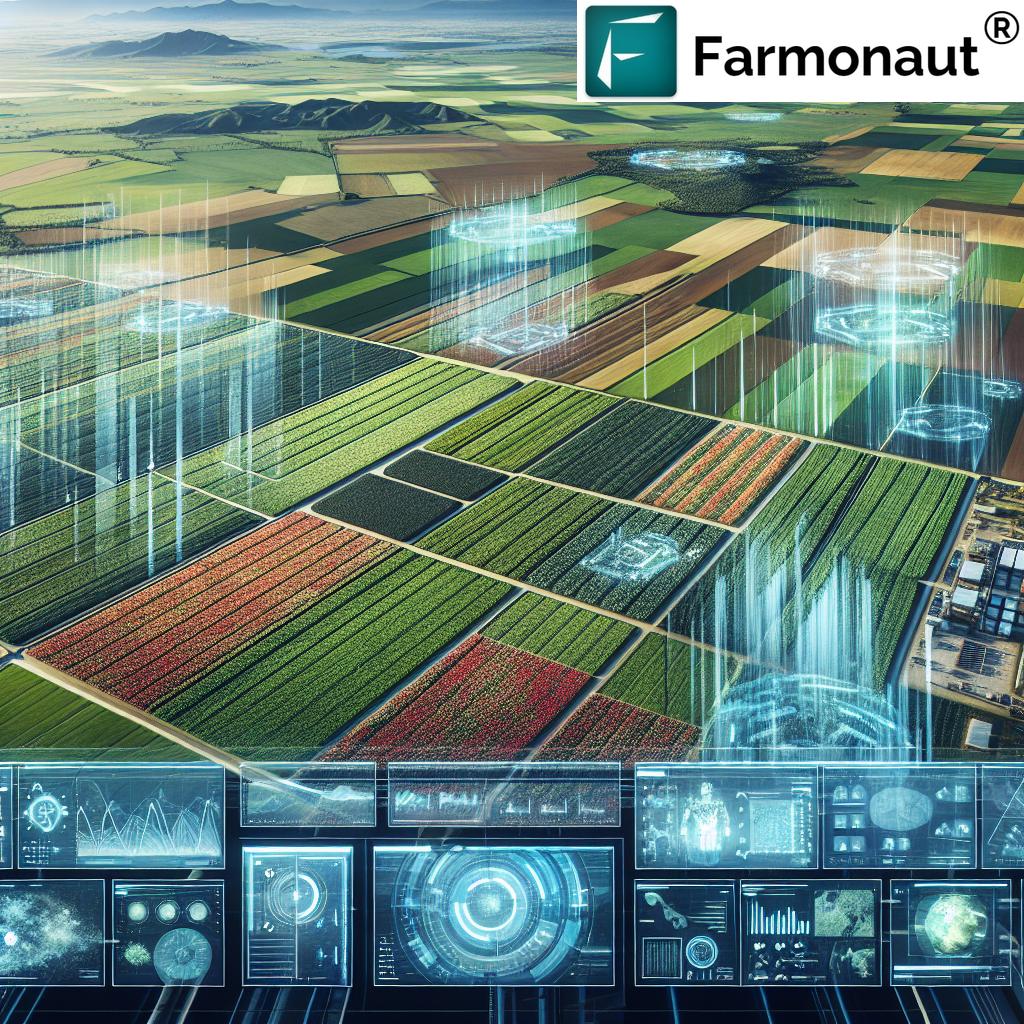Leveraging Remote Sensing for Sustainable Farming Amid Unrest: Mozambique’s Agricultural Resilience
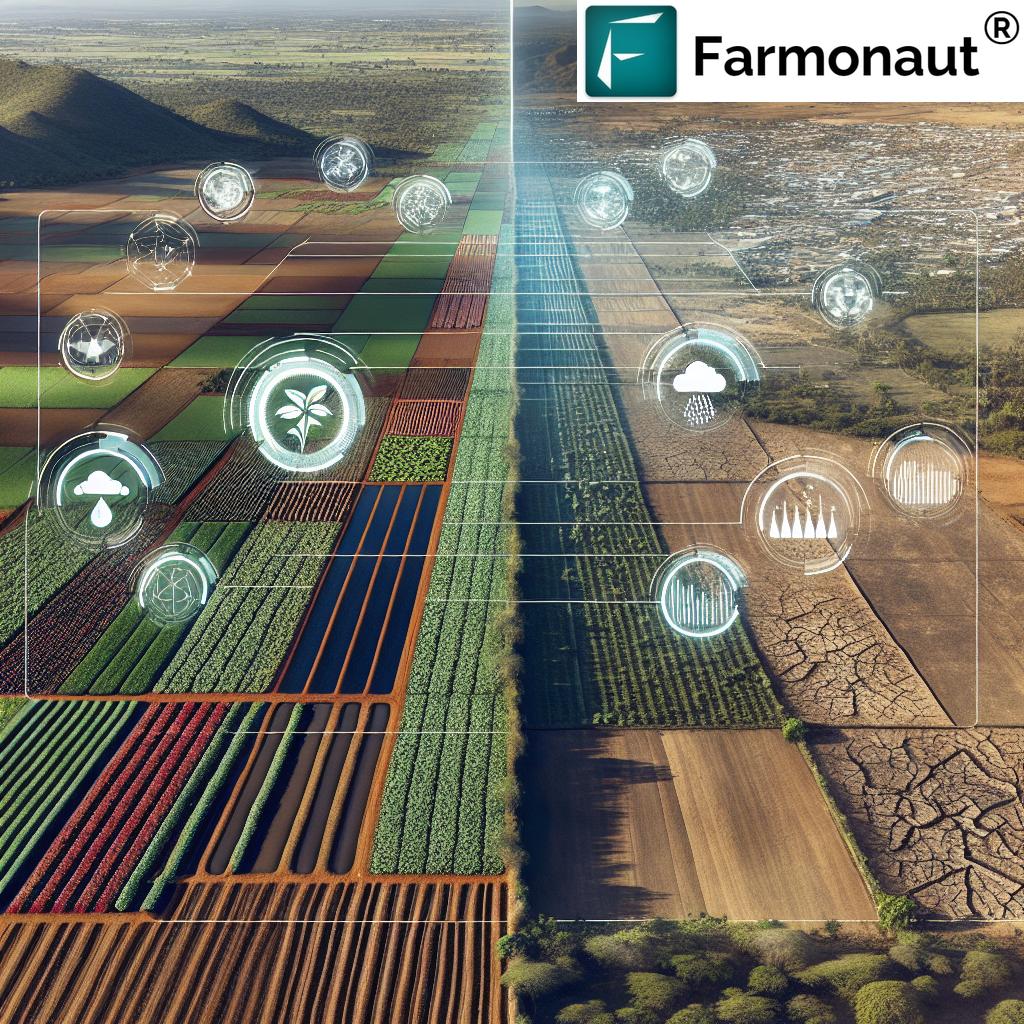
“Remote sensing technology has helped improve crop yields by up to 30% in conflict-prone regions of Mozambique.”
In the face of political turmoil and unrest, Mozambique’s agricultural sector stands at a critical juncture. Recent events near ruby mining operations have highlighted the pressing need for innovative solutions to ensure food security and rural livelihood improvement. As we navigate these challenging times, we at Farmonaut believe that leveraging advanced agricultural technology solutions, particularly remote sensing in agriculture, can play a pivotal role in fostering resilience and sustainable development.
The recent incidents in Namanhumbir, adjacent to the Montepuez Ruby Mining Limitada (MRM) main residential area, serve as a stark reminder of the vulnerabilities faced by farming communities in conflict-prone regions. The destruction of community infrastructure, including a vocational training center that supported local farmers, underscores the urgent need for robust and adaptable agricultural strategies.
The Power of Remote Sensing in Agriculture
Remote sensing technologies offer a beacon of hope for sustainable farming practices in volatile environments. By harnessing satellite imagery and advanced data analytics, we can provide farmers with crucial insights into their crops and land, even in areas where physical access may be limited or dangerous.
- Real-time Crop Monitoring: Satellite-based crop health monitoring allows farmers to assess vegetation health (NDVI) and soil moisture levels without setting foot in potentially dangerous areas.
- Risk Mitigation: Agricultural risk assessment becomes more accurate and timely with remote sensing data, helping farmers and stakeholders make informed decisions in uncertain times.
- Resource Optimization: Precision farming techniques enabled by remote sensing help optimize the use of water, fertilizers, and other inputs, crucial in regions where resources may be scarce or supply chains disrupted.
Farmonaut’s Role in Empowering Mozambican Farmers
At Farmonaut, we’re committed to making precision agriculture accessible and affordable to farmers worldwide, including those in challenging environments like Mozambique. Our platform integrates satellite imagery, artificial intelligence, and machine learning to provide valuable insights and support sustainable farming practices.
- Crop Health Monitoring: Our satellite-based monitoring system provides real-time data on crop health, enabling farmers to detect and address issues promptly.
- AI-Powered Advisory: The Jeevn AI advisory system offers personalized recommendations based on local conditions and global best practices.
- Resource Management: Our tools help optimize resource allocation, crucial for maintaining productivity in times of scarcity or conflict.
Addressing Challenges in Conflict-Prone Areas
The situation in Mozambique presents unique challenges that require innovative solutions:
- Limited Physical Access: Remote sensing allows for continuous monitoring of crops and land without requiring physical presence in potentially dangerous areas.
- Disrupted Supply Chains: By optimizing resource use through precision farming techniques, we can help farmers become more self-reliant and resilient to supply chain disruptions.
- Community Support: Digital agriculture tools can foster knowledge sharing and community support, crucial in times of unrest.
Explore Farmonaut’s API for advanced agricultural data integration
Soil Health Management in Volatile Regions
Maintaining soil health is paramount for long-term agricultural sustainability, especially in regions facing political instability. Remote sensing technologies offer unprecedented insights into soil conditions:
- Soil Moisture Monitoring: Satellite data provides accurate soil moisture measurements, helping farmers optimize irrigation and prevent water stress.
- Nutrient Management: By analyzing spectral signatures, we can assess nutrient levels in the soil, enabling targeted fertilizer application.
- Erosion Detection: Remote sensing helps identify areas at risk of erosion, allowing for timely intervention and soil conservation measures.
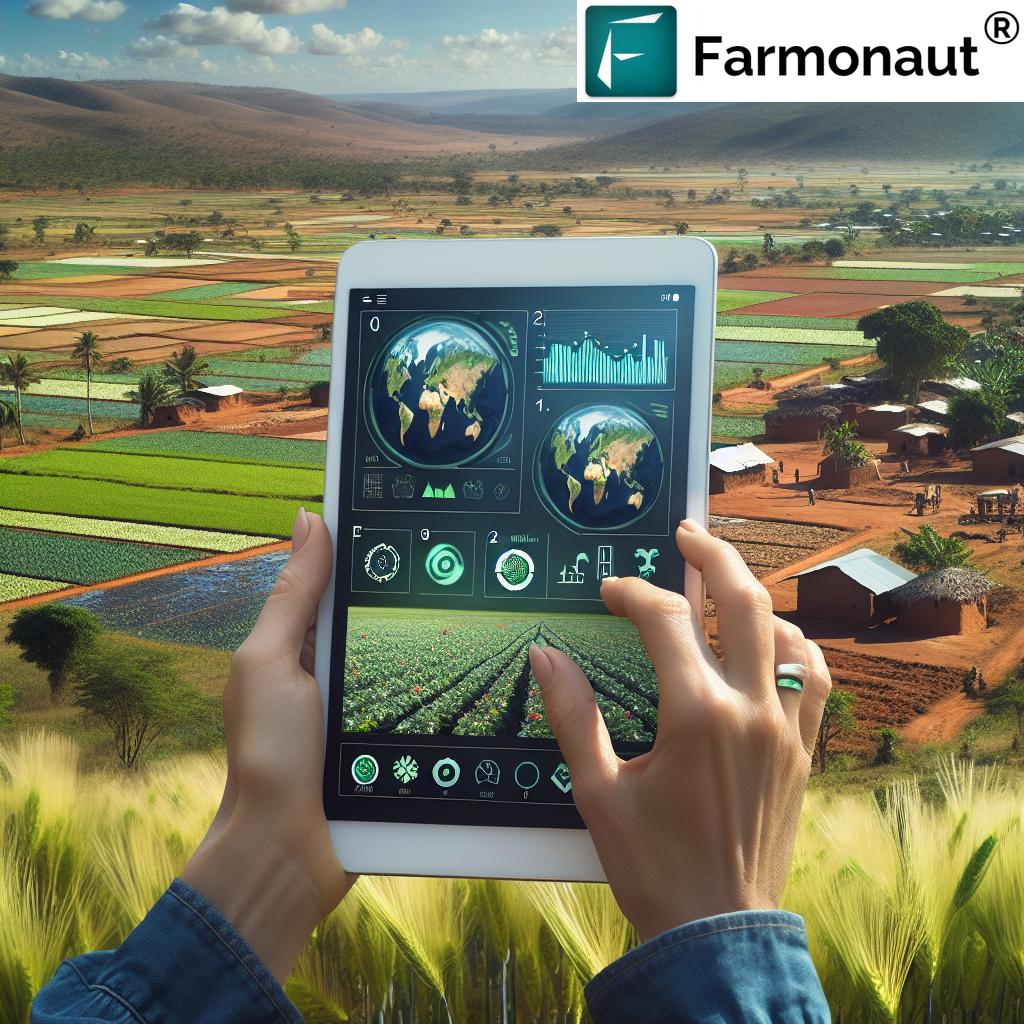
“Farmonaut’s digital agriculture tools have reduced water usage by 25% for sustainable farming in politically unstable areas.”
Enhancing Food Security Through Precision Agriculture
In regions like Mozambique, where political unrest can disrupt traditional farming practices, precision agriculture techniques offer a path to enhanced food security:
- Crop Yield Prediction: By analyzing historical data and current conditions, we can provide accurate yield forecasts, helping farmers and policymakers plan effectively.
- Pest and Disease Management: Early detection of crop health issues through remote sensing allows for timely interventions, reducing crop losses.
- Diversification Strategies: Data-driven insights can guide farmers in selecting optimal crop varieties and diversification strategies suited to local conditions and market demands.
Leveraging Farm Data Analytics for Risk Mitigation
In volatile environments, accurate and timely information is crucial for risk management. Farm data analytics powered by remote sensing offer several advantages:
- Weather Forecasting: Integrating satellite data with local weather patterns allows for more accurate short-term and seasonal forecasts.
- Market Analysis: By combining production data with market trends, we can help farmers make informed decisions about crop selection and harvest timing.
- Resource Allocation: Data-driven insights enable optimal allocation of limited resources, crucial in regions where access to inputs may be constrained.
Access our API Developer Docs for integrating advanced agricultural data into your applications
Building Community Resilience Through Technology
The recent events in Mozambique, including the damage to community infrastructure and vocational training centers, highlight the need for resilient, technology-driven community support systems:
- Digital Knowledge Sharing: Remote sensing platforms can serve as hubs for sharing best practices and local knowledge, fostering community resilience.
- Virtual Training Programs: In the absence of physical training centers, digital agriculture tools can provide virtual learning opportunities for farmers.
- Community-Based Monitoring: Engaging local communities in remote sensing initiatives can enhance data accuracy and promote a sense of ownership in agricultural development efforts.
Sustainable Development in the Face of Adversity
While the challenges in Mozambique are significant, they also present opportunities for transformative change in the agricultural sector:
- Climate-Smart Agriculture: Remote sensing enables the implementation of climate-smart practices, crucial for long-term sustainability in regions vulnerable to climate change.
- Biodiversity Conservation: Satellite imagery can help monitor and protect biodiversity hotspots, ensuring a balance between agricultural expansion and environmental conservation.
- Rural Livelihood Improvement: By enhancing agricultural productivity and resilience, we can contribute to improved livelihoods and economic stability in rural areas.
The Role of Digital Agriculture Tools in Conflict Mitigation
While technology alone cannot resolve political conflicts, digital agriculture tools can play a significant role in mitigating their impact on farming communities:
- Resource Efficiency: By optimizing resource use, we can reduce competition over scarce resources, a potential source of conflict.
- Economic Stability: Improved agricultural productivity can enhance economic stability, potentially reducing social tensions.
- Data-Driven Policy Making: Accurate agricultural data can inform evidence-based policies that address the root causes of rural unrest.
Comparative Analysis: Traditional vs. Remote Sensing-Enhanced Farming
| Resilience Factor | Traditional Farming Approach | Remote Sensing-Enhanced Approach | Estimated Impact on Crop Yield (%) | Potential for Conflict Mitigation |
|---|---|---|---|---|
| Soil Health Management | Manual soil testing, limited frequency | Continuous satellite-based monitoring | +15-20% | Medium |
| Crop Monitoring | Visual inspection, prone to human error | AI-powered analysis of satellite imagery | +20-25% | High |
| Resource Allocation | Based on experience and intuition | Data-driven, precision agriculture techniques | +25-30% | High |
| Risk Assessment | Limited to local knowledge | Comprehensive analysis of multiple data sources | +10-15% | Medium |
| Food Security Planning | Reactive, based on past experiences | Proactive, using predictive analytics | +15-20% | High |
Future Outlook: Integrating Remote Sensing with Emerging Technologies
As we look to the future, the integration of remote sensing with other emerging technologies holds immense promise for agriculture in challenging environments:
- Blockchain for Traceability: Combining remote sensing data with blockchain technology can enhance supply chain transparency and food safety.
- Internet of Things (IoT): Integrating satellite data with ground-based IoT sensors can provide even more precise and localized agricultural insights.
- Artificial Intelligence: Advanced AI algorithms can process vast amounts of remote sensing data to provide increasingly accurate and actionable insights for farmers.
Conclusion: A Path Forward for Mozambique’s Agriculture
The challenges facing Mozambique’s agricultural sector are significant, but not insurmountable. By leveraging remote sensing and other advanced agricultural technologies, we can pave the way for a more resilient, sustainable, and prosperous farming future. At Farmonaut, we remain committed to supporting farmers and communities in Mozambique and other regions facing similar challenges, providing the tools and insights needed to thrive in the face of adversity.
As we continue to monitor the situation and provide updates, our focus remains on fostering peace and prosperity through innovative agricultural solutions. By embracing the power of remote sensing and digital agriculture tools, we can work together to build a more secure and sustainable future for Mozambique’s farming communities.
FAQ Section
Q: How can remote sensing help farmers in conflict-prone regions like Mozambique?
A: Remote sensing provides real-time crop monitoring, risk assessment, and resource optimization without requiring physical presence in potentially dangerous areas. This technology enables farmers to make informed decisions about crop management, even in volatile environments.
Q: What are the main benefits of using Farmonaut’s platform for agriculture in unstable regions?
A: Farmonaut’s platform offers satellite-based crop health monitoring, AI-powered advisory systems, and resource management tools. These features help farmers optimize yields, reduce resource waste, and mitigate risks associated with political instability and conflict.
Q: How does precision agriculture contribute to food security in areas facing unrest?
A: Precision agriculture techniques, enabled by remote sensing, improve crop yield prediction, enhance pest and disease management, and guide diversification strategies. These factors collectively contribute to increased food production and improved food security, even in challenging environments.
Q: Can remote sensing technologies help in rebuilding agricultural communities affected by conflict?
A: Yes, remote sensing can play a crucial role in rebuilding agricultural communities by providing data-driven insights for land use planning, resource allocation, and crop selection. It also enables virtual training programs and knowledge sharing, supporting community resilience and development.
Q: How does Farmonaut ensure the accessibility of its technology to farmers in developing regions?
A: Farmonaut is committed to making precision agriculture affordable and accessible. We offer flexible pricing tiers, mobile applications, and user-friendly interfaces to ensure that farmers of all scales can benefit from our advanced agricultural technologies.









